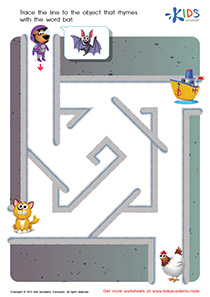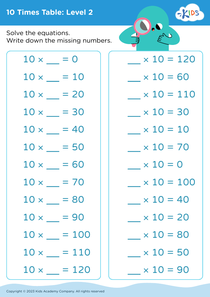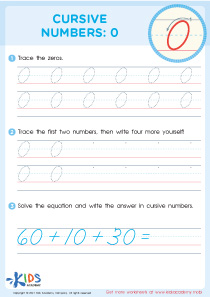Normal Math Quizzes for Ages 6-7
44 results
44 filtered results
Clear all filters44 filtered results
-
From - To
Unlock the world of numbers with our "Normal Math for Ages 6-7" interactive assessment quizzes! Designed specifically for children aged 6 to 7, these engaging quizzes are the perfect way to check your child's math knowledge while providing instantaneous feedback to guide their learning journey. From basic arithmetic to introductory geometry, our quizzes cover essential math concepts in a fun and interactive way. Whether your child is a budding mathematician or just starting to explore the wonders of math, our Normal Math quizzes offer a supportive and enriching environment to grow their skills and confidence. Dive into math adventure today!
In an era where education is becoming increasingly dynamic, incorporating interactive tools into learning can significantly enhance a child's understanding and retention of concepts. This is especially true in the case of mathematics, a subject that forms the foundation of logical thinking and problem-solving skills from a young age. Our Normal Math for Ages 6-7 interactive quizzes are tailored specifically to meet the educational needs of children in this critical age bracket, offering a unique blend of fun and learning that is hard to find elsewhere.
The journey into the world of math for kids aged 6-7 is an exciting one, filled with the discovery of numbers, basic operations, shapes, and measurements. At this tender age, children are naturally curious and eager to explore new concepts. However, the traditional methods of teaching can sometimes fail to fully capture their attention and foster a genuine love for learning. This is where our Normal Math for Ages 6-7 interactive quizzes come into play, transforming learning from a passive to an active, engaging process.
Designed with the cognitive and emotional development of 6-7-year-olds in mind, these quizzes encourage children to interact with the material in a way that feels more like play than work. This interactive approach not only makes math more enjoyable but also significantly improves comprehension and memory retention. When children are actively engaged, they are more likely to understand and remember the concepts being taught.
Moreover, the quizzes are structured to offer instant feedback, a feature that is crucial for learning at any age but especially so for young learners. This immediate response system allows children to understand their mistakes in real-time and learn the correct concepts without developing misconceptions. It fosters a positive learning environment where children can experiment and learn at their own pace without the fear of judgment, thus building their confidence in math from an early age.
Our Normal Math for Ages 6-7 interactive quizzes are also designed to cater to various learning styles. Whether a child is a visual, auditory, reading/writing, or kinesthetic learner, the diverse range of activities and questions ensures that every child finds a way to connect with the material. This inclusivity promotes a deeper understanding and appreciation of math, setting a strong foundation for future learning.
In addition to educational benefits, these quizzes also offer practical advantages for parents and educators. They serve as a valuable resource for tracking a child’s progress and identifying areas that may need extra attention. The convenience of accessing these quizzes online means that learning can happen anytime, anywhere, making it easier to fit into busy schedules.
In summary, our Normal Math for Ages 6-7 interactive quizzes represent a revolution in the way young children engage with mathematics. They are not just tools for learning; they are gateways to a world where math is seen not as a subject to be feared, but as an exciting adventure to be explored. By making math fun, interactive, and accessible, we are nurturing a generation of confident, curious, and knowledgeable learners who are prepared to tackle the mathematical challenges of the future.











